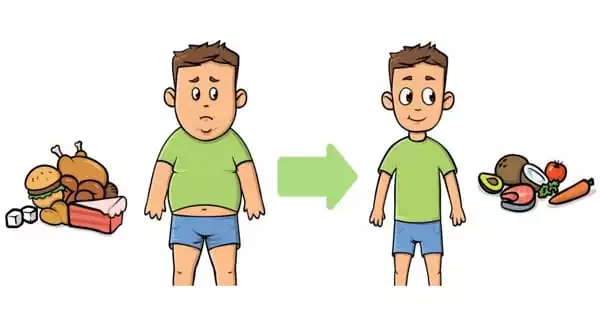Parents are often looking for ways to guide their children as they grow up. How can you help your children acquire healthy habits and create excellent behavior? Furthermore, how can you achieve this level of development while maintaining a pleasant relationship with your children? There are an unlimited amount of parenting ideas available on the internet, but an increasing number of studies show that a specific parenting style consistently produces better results. This type of parenting is referred to as “positive parenting.”
Penn State University researchers discovered that children who had favorable, early contacts with their caregivers – defined by warmth, attentiveness, and a stimulating home environment – had a lower risk of childhood obesity.
“A lot of the discussion around childhood obesity and other health risks focuses on identifying and studying the exposure to risk,” said Brandi Rollins, assistant research professor of biobehavioral health. “We took a strength-based approach in our analysis. We found that a supportive family and environment early in a child’s life may outweigh some of the cumulative risk factors that children can face.”
The study, titled “Family Psychosocial Assets, Child Behavioral Regulation, and Obesity,” was published in the journal Pediatrics recently. Rollins and Lori Francis, associate professor of biobehavioral health, examined data from over 1,000 mother-child pairs and discovered that early exposure to family psychosocial assets, such as a quality home environment, emotional warmth from the mother, and a child’s ability to self-regulate, reduced the risk of developing childhood obesity.
Parenting research has demonstrated that these forms of family assets influence children’s conduct, academic success, profession, and, not surprisingly, health. Because the family assets we analyzed are not food or diet-specific, it is significant that these characteristics also protect against childhood obesity.
Brandi Rollins
These variables were protective even when children encountered familial hazards for obesity, such as poverty, mother depression, or living in a single-parent household.
“Parenting research has demonstrated that these forms of family assets influence children’s conduct, academic success, profession, and, not surprisingly, health,” Rollins said. “Because the family assets we analyzed are not food or diet-specific, it is significant that these characteristics also protect against childhood obesity. It’s encouraging to know that by providing a caring, safe environment for youngsters, we can lower their chances of becoming obese.”
Severe obesity
Obesity is defined in children when their body mass indices (BMIs) are higher than 95 percent of other children their age and gender. The BMIs of children who exceed the obese threshold, on the other hand, vary greatly. Children with a BMI that is 20% greater than the obesity criteria are regarded to be very obese.

The researchers discovered that children with early-onset severe obesity faced no higher levels of familial risk than children who were not obese. Children with extreme obesity, on the other hand, had fewer family assets than children who were either not obese or had moderate levels of obesity. More research is required to determine which factors contribute to the development of extreme obesity and which factors mitigate the risk.
“Though the findings on severe obesity may seem discouraging, they offer some hope,” Rollins explained. “Some risk factors, like household poverty, can be very difficult to change. Assets, on the other hand, may be easier to build. People can learn to parent responsively. It is encouraging that parenting really matters, that family matters.”
What parents can do
This work is based on parenting and child development research. One of the family assets examined in the study is responsive parenting, which entails responding to children in a timely, sensitive, and age-appropriate manner based on the child’s presenting needs. Penn State’s Center for Juvenile Obesity Research is also investigating how attentive parenting can minimize the likelihood of childhood obesity.
This study focused on childhood obesity, however the researchers stated that by learning responsive-parenting practices, parents can improve various outcomes for their children. However, knowledge of responsive-parenting skills may not directly translate to implementation of those skills in the home.
“No one can read a vehicle booklet and then expect to drive,” Rollins remarked. “Driving is a talent that must be learned and practiced. Public health experts, physicians, and researchers must work to assist families establish psychosocial assets, including responsive parenting and a structured home environment,” she added. “This has the potential to reduce childhood obesity rates as well as other significant quality-of-life outcomes.”















